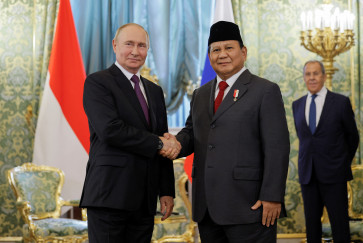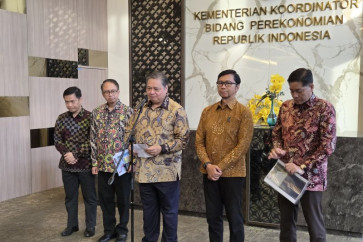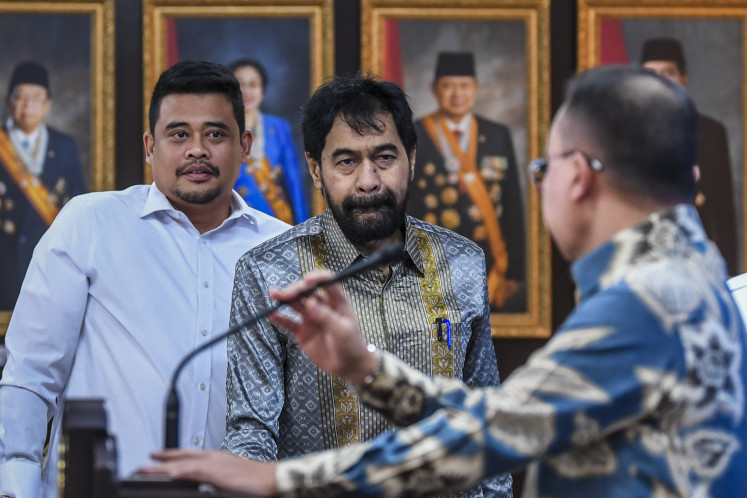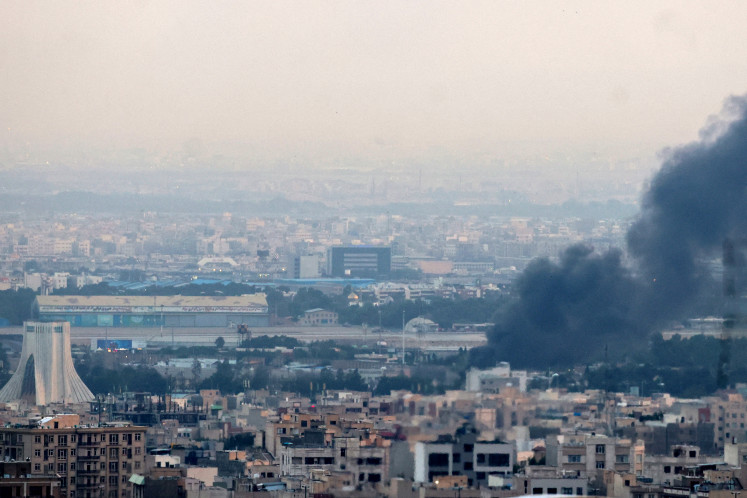Popular Reads
Top Results
Can't find what you're looking for?
View all search resultsPopular Reads
Top Results
Can't find what you're looking for?
View all search resultsIt takes a village to raise a child
I was in the car with my 10-year-old son when a guy on the street handed me a campaign flyer for a candidate running in the gubernatorial election
Change text size
Gift Premium Articles
to Anyone

I
was in the car with my 10-year-old son when a guy on the street handed me a campaign flyer for a candidate running in the gubernatorial election.
The flyer was printed on glossy paper with an attractive design. Aside from a nice picture of the candidate with a try-to-be genuine smile, the flyer came with a promising tagline “it’s time to change”.
My son read the tagline, then put the flyer on the car seat, before calmly quipping: “Oh yeah…. change? Change for the worse!” I glanced at him, trying to guess what he meant, but remained speechless, with no idea how to respond.
When I shared the story with my friends, all of them laughed; some said that he showed a maturity beyond his years, other warned me to preserve his childhood by keeping him away from watching too many news programs. However, for me, it was not that simple.
Many parents would probably share my concern that my son’s cynicism reflects a political climate that does not support parents trying to set a good example to motivate children.
It takes a village to raise a child. Preparing the next generation is not only about teachers saying nice things in class, or providing children with a compact and “sophisticated” curriculum that explains theories of government regardless of their limited capacity to digest.
Education for children is not only about preachers advising them how to live their lives in accordance with their religion, or parents playing a good role model.
No less important is a conducive political climate and government system that provides sufficient capital, both economic and social, to help children grow up as reliable young citizens. Of course, the effort to create this favorable environment requires more than allocating 20 percent of the budget for
education.
Children should know that bribery and other corrupt practices are not only about the loss of trillions of rupiah, that low-quality service delivery is caused by the theft of state funds that has resulted in failing bridges, poorly maintained facilities, delayed production processes and so forth.
Parents need to keep the younger generation away from the mistaken perception that there are easy ways and shortcuts to achievement without hard work.
Bribes may help someone win something, but at the expense of integrity. Government officials may practice collusion to help their relatives secure certain positions, but it defies the meaning of fairness.
Weak law enforcement not only encourages people to seek ways to compromise the law, but also teaches children about indiscipline.
Children as part of the future generation are like two sides of the same coin. On one side, they are people who will deal with the consequences of what adults have done but on the other side, they can be perfect impersonators.
The recent discovery of dozens of young civil servants with billions of rupiah in their bank accounts clearly tells us the transfer of a corrupt culture from the older generation to the next continues apace.
I recalled my conversation with a foreign visitor the other day, he saw Indonesians as people with a highly developed ability to survive, compared to people in his nation. Indonesians often look happy despite facing natural disasters or a situation where the government responds slowly to a disaster. Indonesian people seem to put up with their own unreliable public transportation while government officials enjoy driving luxury cars bought by tax payers’ money.
This highly developed sense of survival may have evolved over a long period as people needed to adapt to uncertain situations.
Of course as parents we don’t want our children to go through life that way. We hope they will have a strong character, high self-confidence, optimism and an appreciation of others. A more conducive political and government system would help Indonesian parents pass on these characteristics to their children.
The writer is a mother of two sons and works with an international development agency. The views expressed are her own.









